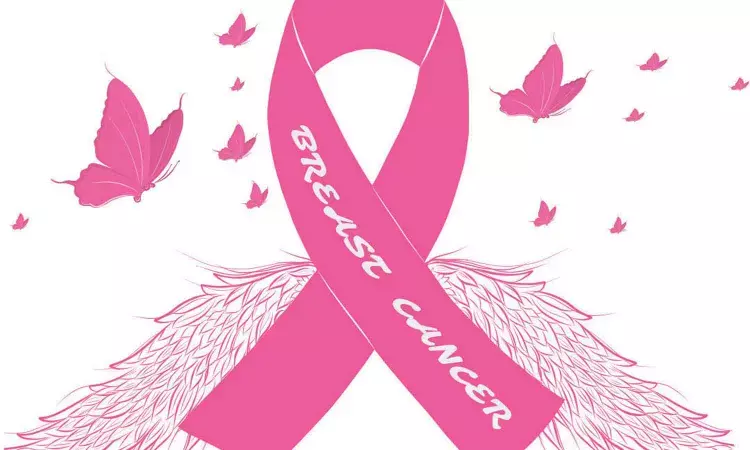- Home
- Medical news & Guidelines
- Anesthesiology
- Cardiology and CTVS
- Critical Care
- Dentistry
- Dermatology
- Diabetes and Endocrinology
- ENT
- Gastroenterology
- Medicine
- Nephrology
- Neurology
- Obstretics-Gynaecology
- Oncology
- Ophthalmology
- Orthopaedics
- Pediatrics-Neonatology
- Psychiatry
- Pulmonology
- Radiology
- Surgery
- Urology
- Laboratory Medicine
- Diet
- Nursing
- Paramedical
- Physiotherapy
- Health news
- Fact Check
- Bone Health Fact Check
- Brain Health Fact Check
- Cancer Related Fact Check
- Child Care Fact Check
- Dental and oral health fact check
- Diabetes and metabolic health fact check
- Diet and Nutrition Fact Check
- Eye and ENT Care Fact Check
- Fitness fact check
- Gut health fact check
- Heart health fact check
- Kidney health fact check
- Medical education fact check
- Men's health fact check
- Respiratory fact check
- Skin and hair care fact check
- Vaccine and Immunization fact check
- Women's health fact check
- AYUSH
- State News
- Andaman and Nicobar Islands
- Andhra Pradesh
- Arunachal Pradesh
- Assam
- Bihar
- Chandigarh
- Chattisgarh
- Dadra and Nagar Haveli
- Daman and Diu
- Delhi
- Goa
- Gujarat
- Haryana
- Himachal Pradesh
- Jammu & Kashmir
- Jharkhand
- Karnataka
- Kerala
- Ladakh
- Lakshadweep
- Madhya Pradesh
- Maharashtra
- Manipur
- Meghalaya
- Mizoram
- Nagaland
- Odisha
- Puducherry
- Punjab
- Rajasthan
- Sikkim
- Tamil Nadu
- Telangana
- Tripura
- Uttar Pradesh
- Uttrakhand
- West Bengal
- Medical Education
- Industry
Over 50% of women with negative genetic test and family history of breast cancer are high risk

Over half of Breast cancer patients who test negative for a hereditary cancer syndrome may be high risk finds a study published in the American Journal of Surgery.
Researchers have found that over half of women with a family history of breast cancer with an uninformative negative genetic test result are identified as high risk. Therefore a negative genetic test doesn't preclude cancer risk in women with a family history of breast cancer. The study has been published in the American Journal of Surgery.
The majority of women who undergo genetic testing due to a significant family history of breast cancer receive negative results yet the incidence of cancer is much higher.
The researchers conducted a study to calculate the lifetime risk of breast cancer in women who received an uninformative genetic test result and were undergoing genetic counseling. The researchers performed a retrospective chart review of mutation-negative women presenting to a cancer risk assessment clinic. The lifetime risks of breast cancer were calculated using Claus, Gail, and Tyrer-Cuzick risk assessment models. They used three widely used risk assessment models and calculated lifetime breast cancer risks of women who had undergone genetic testing and received a negative result. They found that over half of the women included in the study were considered to be high-risk for the development of breast cancer. Approximately half (51%) of the women were classified as high-risk by at least one risk assessment model. The Tyrer-Cuzick model identified the highest proportion (43.2%) of patients as high-risk. Four percent (n = 4) of the sample was considered high-risk by all three models.
The researchers concluded that more than half (51%) of women who underwent genetic counseling and received an uninformative negative genetic test result had a significantly elevated risk for the development of breast cancer. It is, therefore, imperative that women do not conclude that a negative genetic test result represents a lack of risk. Therefore women should not assume that a negative genetic test result represents a lack of risk.
For further reference log on to:https://doi.org/10.1016/j.amjsurg.2019.10.015
Dr Kamal Kant Kohli-MBBS, DTCD- a chest specialist with more than 30 years of practice and a flair for writing clinical articles, Dr Kamal Kant Kohli joined Medical Dialogues as a Chief Editor of Medical News. Besides writing articles, as an editor, he proofreads and verifies all the medical content published on Medical Dialogues including those coming from journals, studies,medical conferences,guidelines etc. Email: drkohli@medicaldialogues.in. Contact no. 011-43720751


